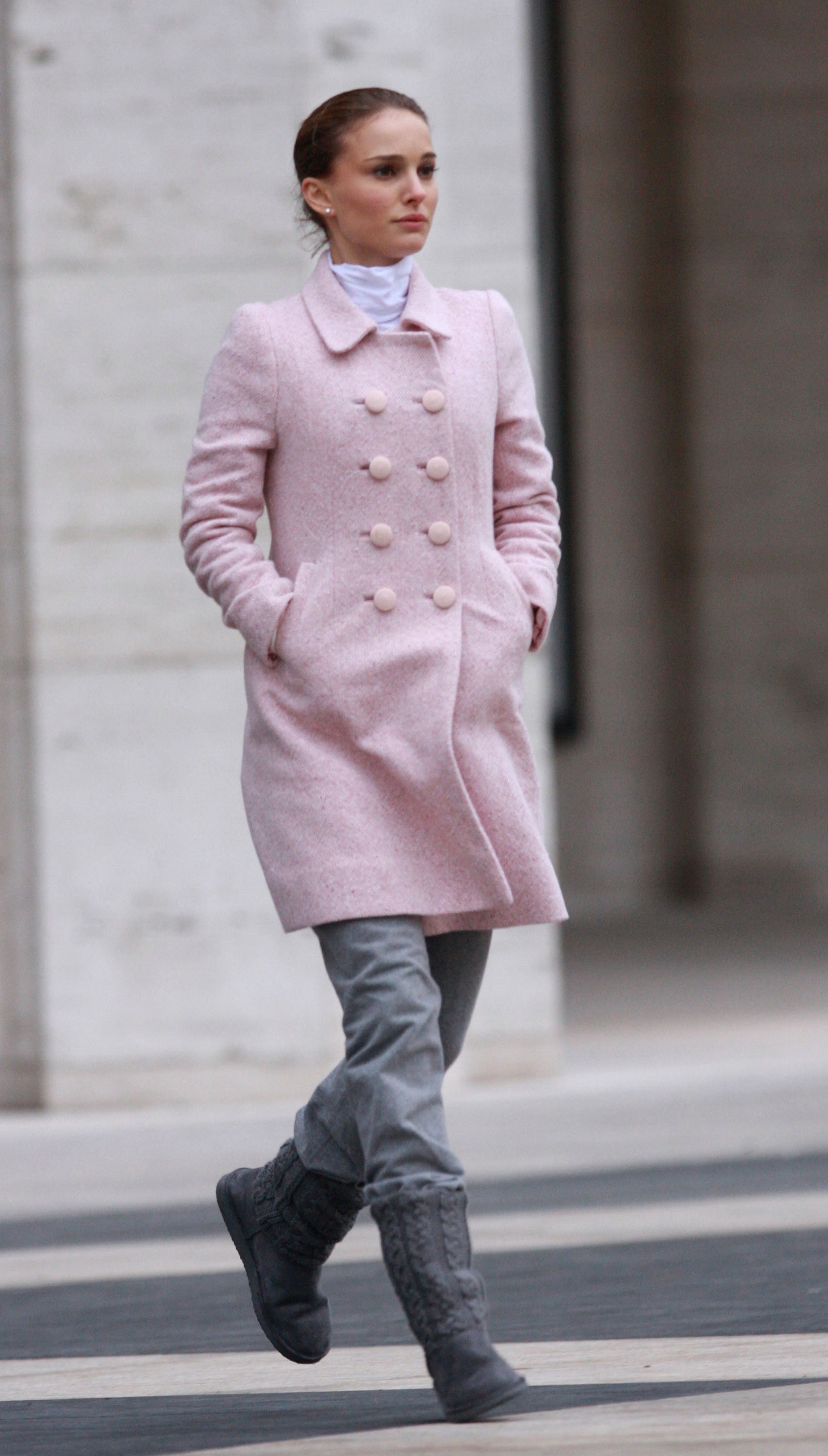Comfy meets theatrical in this 2010s-inspired style resurgence.
At a time when life feel less like the Nutcracker and more like Swan Lake, channeling the off-duty ballerina can feel like an elegant escape. Enter balletcore.
For months, balletcore has been gaining traction on TikTok, the undeniable breeding ground for aesthetic subgenres. Comprised of leotards, wraps sweaters, turtle necks, shrugs, flared leggings, wrap tie skirts, ballet flats and tightly fitting coats, the feminine aesthetic might conjure an image of a ballerina draped in pearls, perfume and light pink hues en route to rehearsal.
Balletcore is largely inspired by the 2010 dark thriller Black Swan, starring Natalie Portman as Nina Sayers opposite Mila Kunas as Lily. (A CliffsNotes guide: In a production of Swan Lake, Nina is overcome by the pressure of her competition with Lily and descends into madness.)
But the relationship between the fashion industry and ballet goes back centuries.
Throughout history, designers like Christian Lacroix, Vivienne Westwood and Valentino have collaborated with ballet productions on dancers’ costumes. Not to mention, fabrics that are associated with ballet — such as lace, bows and tulle — cyclically resurface on the runway. However, the styles we associate with balletcore today haven’t always been accessible to dancers.
First performed almost exclusively by male aristocrats, ballet became a female-dominated field as it was popularized throughout the 18th and early 19th centuries. In the early 1900s, there was no ready-made ballet clothing, and dancers practiced in adapted streetwear. As decades passed, dancewear became more accessible and in the 1970s and ‘80s, stretchy one-piece leotards, unitards, leggings and tights were popularized.
TikTok trend forecaster Biz Sherbet (@thedigifairy) recently predicted balletcore to be one of 2022’s biggest trends. “In many ways, ballet-inspired fashion it’s a natural evolution of athleisure,” she says. “It offers the same comfort and stretch but it’s undeniably more glamorous.”
And some brands have taken note. Zara recently partnered with the New York City Ballet for its own ballet-inspired collection, made up of bodysuits, tulle blouses and mesh-heavy pieces. Footwear labels are also releasing refreshed takes on the classic ballerina shoe. New designs include ballet slippers with heels, platforms, pointed toes and split-toes.
Trend forecaster Mandy Lee (@oldloserinbrooklyn) calls ballet-inspired fashion “Parisian ballet,” and says it blends traditional ballerina attire with Parisian streetwear, such as knee-high socks, bows and berets. It’s no surprise considering our adoration for Parisian style is stronger than ever thanks in part to popular media like Emily In Paris.
Lee adds that the trend also aligns with other early- to mid-2010s revivals, such as Twee style. Balletcore embraces hyper-femininity and girlhood, but along with other Tumblr-era styles, its history is complex. The ballet profession has long been synonymous with the white, thin ingenue dancer.
But, to an extent, balletcore shouldn’t be confused with the actual profession. In her recent video exploring the aesthetic, fashion critic Mina Le said the art form and deeper meaning of ballet has been appropriated by those who treat it only as a fashion trend. “Critics have been arguing for a long time about how letting any little girl wear a tutu devalues ballet as a serious profession,” she says.
“When an aesthetic like balletcore is so hyperfocused on the aesthetic elements of a culture, it can actually fade into this notion that princess and ballerina culture are intrinsically vapid ‘girl’ hobbies,” she continues.
Still, modern-day balletcore is likely to stick around, thanks to its blending of cozy streetwear and theatrical costuming. At its core, the aesthetic is all about comfort and beauty, and who couldn’t use more beauty right now?
